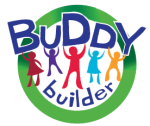About Dr. Kupersmidt

- peer relationship problems such as peer rejection and peer victimization;
- aggression and delinquency in children and adolescents;
- social and emotional learning and assessment;
- programs and services to enhance the quality of youth mentoring relationships;
- stress and coping in children and adolescents; and
- the effects of exposure to violence on children and adolescents.
- aggressive, rejected or peer-victimized children in school settings;
- rural children of migrant and seasonal farm workers;
- incarcerated adolescents; and
- substance-abusing adolescents.
Kupersmidt, J. B., Stump, K. N., Stelter, R. L., & Rhodes, J. E. (in press). Predictors of premature match closure in youth mentoring relationships. American Journal of Community Psychology.
Kupersmidt, J. B., Stelter, R. L., Rhodes, J. E., Stump, K. (in press). Enhancing mentor efficacy and preparedness through web-based, pre-match training, Journal of Nonprofit Education and Leadership.
Primack, B., Woods, M., Kupersmidt, J. B., Bier, M., & Austin, E. (in press). Media literacy and smoking. In the International Encyclopedia of Media Literacy.
Scull, T.M., Malik, C.V., & Kupersmidt, J.B. (in press). Understanding the unique role of media message processing in predicting adolescent sexual behavior intentions in the United States. Journal of Children and Media.
Scull, T.M., Kupersmidt, J.B., & Weatherholt, T.N. (in press). The effectiveness of an online, family-based media literacy education program for substance abuse prevention in elementary school children: Study of the Media Detective Family program. Journal of Community Psychology.
Elmore, K. C., Scull, T. M., & Kupersmidt J. B. (2017). Media as a “super peer”: How adolescents interpret media messages predicts their perception of alcohol and tobacco use norms. Journal of Youth and Adolescence, 46(2), 376-387. PMC5243166
Kupersmidt, J. B., Stump, K. N., Stelter, R. L., & Rhodes, J. E. (2017). Mentoring program practices as predictors of match outcomes. Journal of Community Psychology. 45(5), 630-645.
Kupersmidt, J. B., Stump, K. N., Stelter, R. L., & Rhodes, J. E. (2017). Predictors of premature match closure in youth mentoring relationships. American Journal of Community Psychology. 59(1-2), 25–35.
Kupersmidt, J. B., Stelter, R. L., Rhodes, J. E., Stump, K. (2017). Enhancing mentor efficacy and preparedness through web-based, pre-match training, Journal of Nonprofit Education and Leadership. 7(3), 197-216.
Kupersmidt, J. B., Stump, K. N., Stelter, R. L., & Rhodes, J. E. (2017). Mentoring program practices as predictors of match outcomes. Journal of Community Psychology. 1-16. doi: 10.1002/jcop.21883
Scull, T.M., Kupersmidt, J.B., & Weatherholt, T.N. (2017). The effectiveness of an online, family-based media literacy education program for substance abuse prevention in elementary school children: Study of the Media Detective Family program. Journal of Community Psychology, 46(6), 796–809.
Scull, T. M., Kupersmidt, J. B., Malik, C. V., & Keefe, E. M. (2017). Examining the efficacy of an mHealth media literacy education program for sexual health promotion in older adolescents attending community college. Journal of American College Health, 00-00. doi:10.1080/07448481.2017.1393822
Elmore, K. C., Scull, T. M., & Kupersmidt J. B. (2016). Media as a “Super Peer”: How adolescents interpret media messages predicts their perception of alcohol and tobacco use norms. Journal of Youth and Adolescence. Published online: 11 November 2016. doi:10.1007/s10964-016-0609-9
Griffith, S., Arnold, D., Voegler-Lee, M. E., & Kupersmidt, J. B. (2016). Individual characteristics, family factors, and classroom experiences as predictors of low-income Kindergarteners’ social skills. Journal of Educational and Developmental Psychology, 6(1), 59.
Parker, A. E. & Kupersmidt, J. B. (2016). Two universal mindfulness education programs for elementary and middle school students: Master Mind and Moment. In K. Schonert-Reichl & R. Roeser (Eds). Handbook of Mindfulness in Education: Emerging Theory, Research, and Programs (Vol. 1). Springer Press, 335-354.
Scull, T.M., Malik, C.V., Kupersmidt, J.B., & Moallem, M. (2016). Rethinking sexuality education: A web-based solution. In Proceedings of Society for Information Technology & Teacher Education International Conference 2016 (pp.2344-2348).
Baker, C. N., Tichovolsky, M., Kupersmidt, J. B., Voegler-Lee, M. E., & Arnold, D. H. (2015). Teacher (mis)perceptions of preschoolers’ academic skills: Predictors and associations with longitudinal outcomes. Journal of Educational Psychology, 107(3), 805-820. http://psycnet.apa.org/doi/10.1037/edu0000008
Garringer, M., Kupersmidt, J. B., Rhodes, J., Stelter, R., & Tai, T. (2015). Elements of effective practice for mentoring (4th Edition). Boston, MA: MENTOR: The National Mentoring Partnership.
Scull, T.M., Ortiz, R., Shafer, A., Brown, J., Kupersmidt, J.B., & Suellentrop, K. (2015). The effects of viewing and discussing episodes of 16 & Pregnant on high risk adolescents’ pregnancy-related outcomes. Journal of Media Literacy Education, 7(2), 1-11.
Parker, A., E., Kupersmidt, J. B., Mathis, E. T., Scull, T. M., & Sims, C. (2014). The impact of mindfulness education on elementary school students: Evaluation of the Master Mind Program. Advances in School Mental Health Promotion, advance online publication. doi:10.1080/1754730X.2014.916497
Scull, T. M., Malik, C. V., & Kupersmidt, J. B. (2014). A media literacy education approach to teaching adolescents comprehensive sexual health education. Journal of Media Literacy Education. 6(1), 1-14.
Kupersmidt, J. B., & Rhodes, J. E. (2013). Mentor training and support. In D. L. DuBois and M. J. Karcher (Eds.). Handbook of Youth Mentoring, Second Edition (pp. 439 – 468). Thousand Oaks: Sage Publications.
Parker, A. E., Mathis, E. T., & Kupersmidt, J. B. (2013). How is this child feeling? Preschool-aged children’s ability to recognize emotion in faces and body poses. Early Education and Development, 24(2), 188-211.
Scull, T. M., Kupersmidt, J. B., & Erausquin, J. T. (2013). The impact of media-related cognitions on children’s substance use outcomes in the context of parental and peer substance use. Journal of Youth and Adolescence. 43(5), 717-728. doi:10.1007/s10984-013-0012-8
Arnold, D. H., Kupersmidt, J. B., Voegler-Lee, M. E. & Marshall, N. (2012). The association between preschool children’s social functioning and their emergent academic skills. Early Childhood Research Quarterly. doi:10.1016/j.ecresq.2011.12.009
Kupersmidt, J. B., Scull, T. M., & Benson, J. W. (2012). Improving media message interpretation processing skills to promote healthy decision making about substance use: The effects of the Media Ready Curriculum. Journal of Health Communication: International Perspectives, 17(5), 546-563. doi:10.1080/10810730.2011.635769
Voegler-Lee, M., Kupersmidt, J. B., Field, S. &. Willoughby, M. T. (2012). Student characteristics as predictors of teacher’s implementation of a Kindergarten readiness program. Prevention Science. doi: 10.1007/s11121-012-0274-5
Willoughby, M. T., Kupersmidt, J. B., & Voegler-Lee, M. E. (2012). Is preschool executive function causally related to academic achievement? Child Neuropsychology, 18(1), 79-91.
Kupersmidt, J. B., Stelter, R., & Dodge, K. A. (2011). Development and validation of the SIP-AP: A web-based measure of social information processing patterns in elementary school-aged boys. Psychological Assessment. 23(4), 834-847. doi:10.1037/a0023621
Scull, T. M., & Kupersmidt, J. B. (2011). An evaluation of a media literacy program training workshop for late elementary school teachers. Journal of Media Literacy Education, 3(1).
Willoughby, M. T., Kupersmidt, J. B., Voegler-Lee, M. E., Bryant, D., Peisner-Feinberg, E., & Arnold, D. (2011). Contributions of hot and cool self-regulation to preschool disruptive behavior and academic achievement. Developmental Neuropsychology, 36(2), 162-180.
Baker, C. N., Kupersmidt, J. B., Voegler-Lee, M.E., Arnold, D. H., & Willoughby, M. T. (2010). Predicting teacher participation in a classroom-based, integrated preventive intervention for preschoolers. Early Childhood Research Quarterly, 25(3), 270-283.
Kupersmidt, J. B., Scull, T. M., & Austin, E. W. (2010). Media literacy education for elementary school substance abuse prevention: A short-term randomized efficacy study of the Media Detective curriculum. Pediatrics, 126(3), 525-531.
Scull, T.M., Kupersmidt, J.B., Parker, A.E., Elmore, K.C., & Benson, J.W. (2010). Media-related cognitions and adolescent substance use in the context of parental and peer influences. Journal of Youth and Adolescence, 39(9), 981-998.
